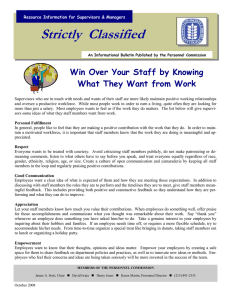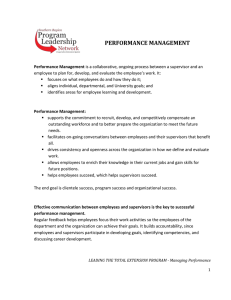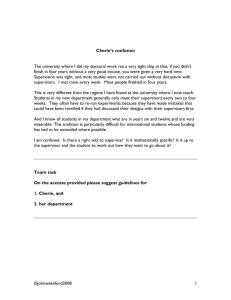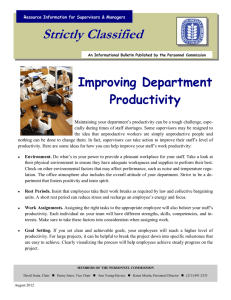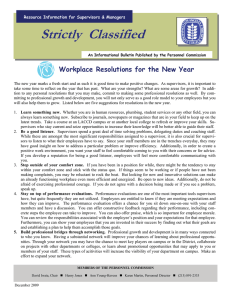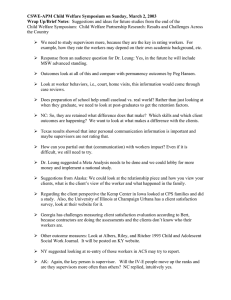Strictly Classified Improving Communication with Staff
advertisement
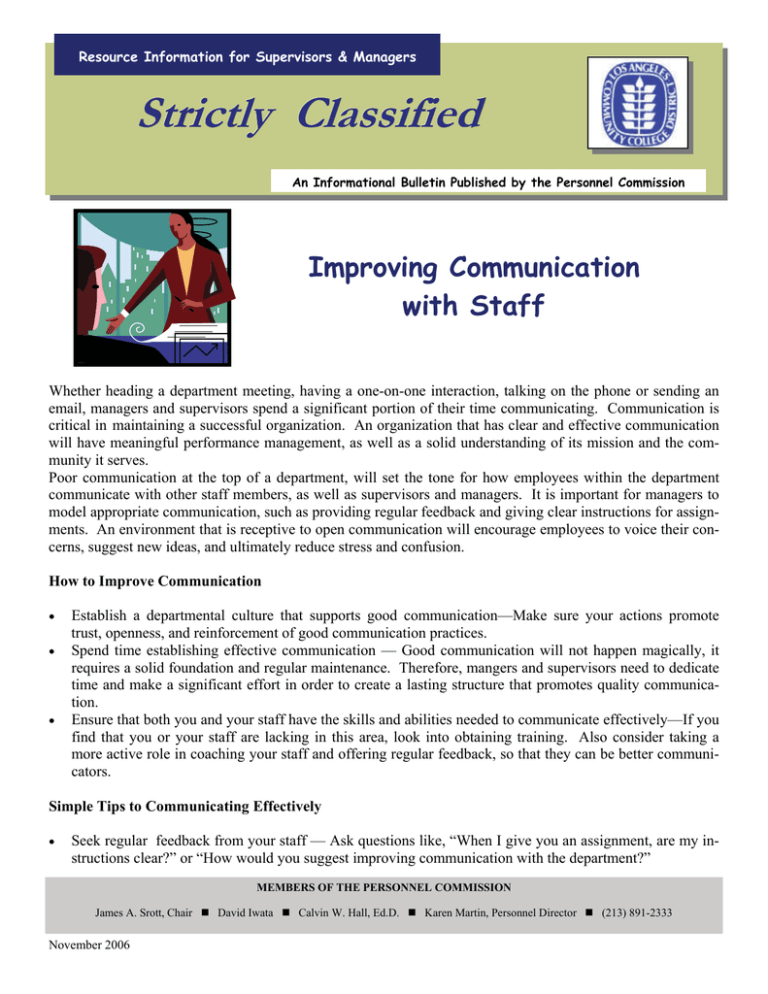
Resource Information for Supervisors & Managers Strictly Classified An Informational Bulletin Published by the Personnel Commission Improving Communication with Staff Whether heading a department meeting, having a one-on-one interaction, talking on the phone or sending an email, managers and supervisors spend a significant portion of their time communicating. Communication is critical in maintaining a successful organization. An organization that has clear and effective communication will have meaningful performance management, as well as a solid understanding of its mission and the community it serves. Poor communication at the top of a department, will set the tone for how employees within the department communicate with other staff members, as well as supervisors and managers. It is important for managers to model appropriate communication, such as providing regular feedback and giving clear instructions for assignments. An environment that is receptive to open communication will encourage employees to voice their concerns, suggest new ideas, and ultimately reduce stress and confusion. How to Improve Communication • • • Establish a departmental culture that supports good communication—Make sure your actions promote trust, openness, and reinforcement of good communication practices. Spend time establishing effective communication — Good communication will not happen magically, it requires a solid foundation and regular maintenance. Therefore, mangers and supervisors need to dedicate time and make a significant effort in order to create a lasting structure that promotes quality communication. Ensure that both you and your staff have the skills and abilities needed to communicate effectively—If you find that you or your staff are lacking in this area, look into obtaining training. Also consider taking a more active role in coaching your staff and offering regular feedback, so that they can be better communicators. Simple Tips to Communicating Effectively • Seek regular feedback from your staff — Ask questions like, “When I give you an assignment, are my instructions clear?” or “How would you suggest improving communication with the department?” MEMBERS OF THE PERSONNEL COMMISSION James A. Srott, Chair November 2006 David Iwata Calvin W. Hall, Ed.D. Karen Martin, Personnel Director (213) 891-2333 • • • • Establish a plan for departmental communication—For example, determine how disagreements should be handled, how staff members should communicate with each other, and when to involve a supervisor. If there is information that needs to made available to all department members, establish a time that information will be available and how it should be accessed. Avoid indirect communication—Messages that are transmitted from person to person tend to become jumbled and misinterpreted. To avoid confusion, communicate messages directly whenever possible. Be a good listener—Listening is essential to good communication. Pay attention to the concerns your employees are expressing, as well as ideas that they suggest. Hold periodic staff meetings—Staff meetings offer an opportunity to directly communicate changes in office procedures, upcoming projects, and expectations. It also serves as an opportunity for both supervisors and employees to express concerns and give praise. Establishing a foundation for communication requires consistency and dedication. However, if enacted properly your department will become more efficient and effective.
